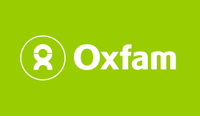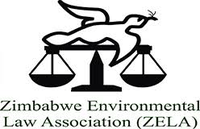Consultancy on the development of a financial and economic governance training manual in the mining sector: A focus on combating IFFs and strengthening Mineral Revenue Management in Zimbabwe.
Job Description
1.0 Introduction
An environmental law organisation is implementing a project whose aim is to strengthen transparency and accountability in the management of fiscal revenue in the mining sector in Zimbabwe. One of the strategies that the organisation is using under the project is capacity of oversight institutions such as parliament to be able to play their oversight role on mineral revenue management and governance. Recognizing the need to ensure that the capacity building initiatives under the project and beyond are consistently informed by comprehensive evidence based information, the organisation aims to develop a training manuals. The training manuals will offer financial and economic governance expertise on combating IFFs and strengthening mineral revenue management. ZELA's interest in such a manual arises from the realization that IFFs thrive in the natural resource governance sector, particularly in mining. Illicit financial flows (IFFs) pose a significant obstacle to Zimbabwe's developmental efforts, impacting the nation's ability to generate, retain, and allocate resources for sustainable economic progress and development.
2.0 Background and Problem analysis
According to the African Union (AU)’s High Level Panel (HLP) on Illicit Financial Flows (IFFs) from Africa Report 2015, countries that dependent on natural resource commodities to drive export earnings are highly prone to IFFs. This was buttressed by the UN’s Conference on Trade and Development (UNCTAD)’s Economic Development in Africa Report 2020. UNCTAD highlighted that Africa was losing more than US$88.6 billion annually through IFFs. Almost half, that is US$40 billion, emanated from the mining sector. Gold, diamond, and platinum were identified as the top emitters of IFFs, respectively accounting for 77%, 12% and 6% of the losses. Other minerals contribute the remainder, 5%.
This outlook portends a great risk for Zimbabwe’s quest to harness minerals for sustainable and broad-based economic development. Zimbabwe is a mineral rich and a mining dependent economy. In 2022, mining contributed nearly 76 cents per every dollar generated from exports. Gold, platinum, and diamonds are the main drivers of export earnings from the mining sector and these minerals are highly susceptible to IFFs. In addition, lithium has emerged as one of the lucrative assets in the Zimbabwe’s mineral wealth portfolio.
Much as this development is exciting, it may be overshadowed by eminent risks posed by IFFs. While there may be debates around how much Zimbabwe is losing through IFFs, the enormity of the figures involved is self-evident. Zimbabwe lost US$22,652 million from 1980 to 2018 according to the Africa Growth Initiative (AGI) at Brooking Institute 2020. Roughly US$1.2 billion is lost from the gold mining sector according to the Minister of Home Affairs. ZACC recently estimated that Zimbabwe’s rough losses from corruption and IFFs stand at US$2 billion annually.
The main drivers of IFFs from the mining sector as posited by the HLP Report are unequal and secretive mining agreements, abusive transfer pricing, misinvoicing, overly generous tax incentives, smuggling and corruption. Further, AGI’s findings highlights that countries with higher taxes and higher inflation are associated with higher IFFs, most likely because firms seek relatives more stable fiscal environments for their funds.
Reflecting on Zimbabwe, the National Development Strategy (NDS) 2021- 2025 acknowledges that weak governance of the mining sector is a major threat to the country’s push to transform its socio-economic fortunes from mining. Additionally, NDS shined a light on the threat posed on domestic revenue mobilisation by numerous and highly costly tax incentives. Couple with the increased the increased growth of the informal economy, artisanal and small-scale gold being a case is point, Zimbabwe is faced with a daunting task to mobilise tax revenue from mining loom large
Duties and Responsibilities
3.0 Objectives of the training manuals are to:
(i) Contextual background on the political economy of curbing IFFs from mining sector and strengthen mineral revenue management in Zimbabwe.
(ii) Profile main vulnerabilities of IFFs from the mining sector in Zimbabwe.
(iii) Showcase policy, institutional, legal and practice reforms necessary to curb IFFs.
(iv) Establish a policy tracker on curbing IFFs customized per each stakeholder.
4.0 The scope of the assignments.
Customised training manuals on curbing IFFs from the mining sector targeting priority institutions are required. The institutions include the Ministry of Mines and Mining Development (MMD), the Ministry of Finance and Economic Development (MoFED), the Zimbabwe Revenue Authority (ZIMRA), and Parliament of Zimbabwe, especially the Portfolio Committee on Budget, Finance, and Economic Development, Portfolio Committee on Mines and Mining Development, and Portfolio Committee on Public Accounts.
MMD’s overall mandate to promote sustainable exploration, mining, processing, marketing, and management of mineral resources for the benefit of all Zimbabweans. MoFED’s mission is to formulate, coordinate and monitor the implementation of national development plans, macro-economic policies, effectively Mobilise, Allocate, Manage and Account for public resources. ZIMRA’s mandate includes revenue collection and to advise the government on fiscal and economic matters, among others. Parliament’s three main functions are legislative, representation and oversight.
The training manual should focus on the top emitters of IFFs from mining comprising gold, platinum, diamonds, and lithium. Also, the manual must show distinct IFFs risk mitigation strategy for each mineral value chain coupled with the formality or informality of the sector concerned. It is imperative that the training manual be produced in a consultative or participatory manner to entrench the buy in from stakeholders involved. The training manuals should be well written with references and acknowledgement of sources of materials that are referred to in the text, end notes and bibliography at the end.
4.0 Deliverables
Working closely with the organization, the following deliverables are expected from the Consultant(s);
• An inception report detailing the methodology to be used and the structure of the training manual
• A draft manual for review and the final manual
• The consultant should be able available to train the first batch of accountability actors including relevant Parliament Portfolio Committees including the committee on IFFs and Taxation scheduled for early August, 2024.
Qualifications and Experience
5.0 Applicants Requirements and Competencies
Suitable consultants should have education, skills and experience in the following areas:
• Policy aptitude and experience on taxation, illicit financial flows, trade, investment, debt, and political economy of mineral resource governance at national, regional and international levels
• Postgraduate degree in Taxation, Economics, Law, Human Rights and an Undergraduate degree in taxation, finance, or accounting with experience on illicit financial flows working at regional and international levels.
• A minimum of 5 years of professional experience in undertaking similar or related research and trainings on IFFs working with parliamentarians, Governments and CSOs.
How to Apply
Interested and qualified Consultants who meet the above requirements should send their Expressions of Interest clearly stating how they meet the requirements, their understanding of TORs methodology to be used and budget of the consultancy to: [email protected]
Deadline for submission of EOI is 15 June, 2024
Similar Listings

CALL FOR EXPRESSION OF INTEREST FOR CONSULTANCY SERVICES FOR THE DESIGN AND IMPLEMENTATION OF A CAPACITY DEVELOPMENT PROGRAM FOR SIMUKAI CHILD PROTECTION PROGRAMME
Simukai Child Protection Program — Harare

Baseline Assessment for the project, “Integrated Emergency Response for El Niño Drought Affected Communities in Zimbabwe,
Oxfam — Harare

Terms Of Reference
Oxfam — Harare

Terms Of Reference
Oxfam — Harare

Location: Harare
Company: Zimbabwe Environmental Law Association (ZELA)
Expiry Date: 2024-06-10 00:00:00
